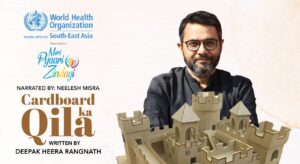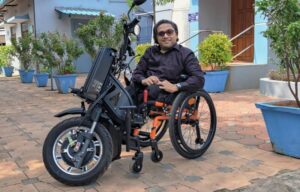Panna, Madhya Pradesh
Skateboarding has been the unlikely catalyst for change in the small village of Janwaar in Madhya Pradesh. With a predominantly adivasi population of no more than 1,400, the village is in Panna district, about 400 kilometres away from the state capital of Bhopal.
Almost every child in the village skateboards and has been doing so since 2016 when a visitor from Germany, Ulrike Reinhard, a writer and activist who works with children, introduced them to it. She and her team built a skateboard park for them and brought about startling changes.
Besides the skating park, named Janwaar Castle, that pushed the village into the spotlight, it is organic farming that has become a ‘thing’ in the village.
While the children are making a name for themselves in skateboarding in the country and abroad, their parents are earning a livelihood as organic farmers.
A change for the better
Before this happened, the village in the Bundelkhand region that is notorious for recurring droughts, had no roads or electricity. Most of the women gathered firewood from the forests and sold them at Panna for a living.
Also Read: Five fisherwomen in Tamil Nadu set up Dolphin, a restaurant, and free their husbands of debt
But with Ulrike Reinhard making an entry into their lives, things changed. Not only did Reinhard encourage the children to skateboard, she insisted that they pay attention to their studies too.
“Hundred per cent of the children in the village go to school now. Ulrike Madam made a rule – ‘no school, no skateboarding’-that got us all to the classroom,” Asha Gond, a 20-year-old skateboarder from the village who was one of the first to go abroad from her village.
She represented India as she took part in the 2018 World Skate Park World Championships at Nanjing, China.
“In 2019, at the national roller skating competition in Visakhapatnam, there were twelve participants from Janwaar,” Asha Gond told Gaon Connection. They won five medals including two gold medals. According to her until now the children from Janwaar have won over 30 national and international medals.
The ripple effect
Meanwhile, as the children of the village were winning accolades, there were other changes in the village. The social fabric was slowly but surely altering, for the better.
Also Read: Tiger Dad wins custody of his cubs at Panna Tiger Reserve
“We were very apprehensive in the beginning when Asha began to rollerskate. Others in the village reproached us saying our daughter instead of working at home was wandering around the village,” Kamala Gond, Asha’s mother told Gaon Connection. “Now everyone praises her,” she added with pride.
“If I had not taken to skating, I would be married by now,” said Asha who has become a role model for other girls in the village. She said that many of the girls in the village are now choosing to study rather than get married early. The parents are also encouraging them to get an education, said Asha.
Also Read: Archery then and now: How tribal communities in Tripura used one of the oldest known weapons
By building the skateboarding centre in the village, Reinhard set in motion a change that continued long after she returned to her country. With her help a computer centre was set up in the village where Asha holds classes for other children in the village.
From foraging to farming
Skateboarding fame has pulled the obscure, underdeveloped and largely neglected village into the mainstream. Most of its inhabitants were forest gatherers, but are now into organic farming.
“I have two and a half acres of land on which I cultivate organic vegetables that I harvest and sell in Panna,” Mithailal Gond told Gaon Connection. The 45-year-old said he made enough money to take care of his family.
Also Read: Water hyacinth gets a makeover as yoga mats
The vegetables and fruits grown by 65-year-old Lakhanlal Kushwaha on his 16-acre land are well known far and wide for their quality. “I grow mangoes and guavas in my orchard,” Kushwaha said. He also cultivates vegetables and said even during the pandemic he earned a comfortable Rs 5,000 to Rs 6,000 a day.
The market at Panna town is no more than eight kilometres from Janwar and that makes it easier for the farmers of the village to sell their produce. The horticulture department has also encouraged cultivation of fruits and vegetables in the village.
“There are about forty families, mostly adivasis, in the village that are into agriculture. They grow organic vegetables in about fifty acres of land in all,” Mahendra Mohan Bhatt, assistant director of Panna’s Horticulture Department, told Gaon Connection. The produce that is grown without chemical fertilisers or pesticides fetches a good price in the market, Bhatt added.
“It is not just the physical aspects in the village that have changed, it is also the mindset,” Asha Gond observed happily. “Untouchability and caste discrimination that was part and parcel of our life here is diminishing. We all play and laugh together now,” she said.
Read the story here in Hindi.



















